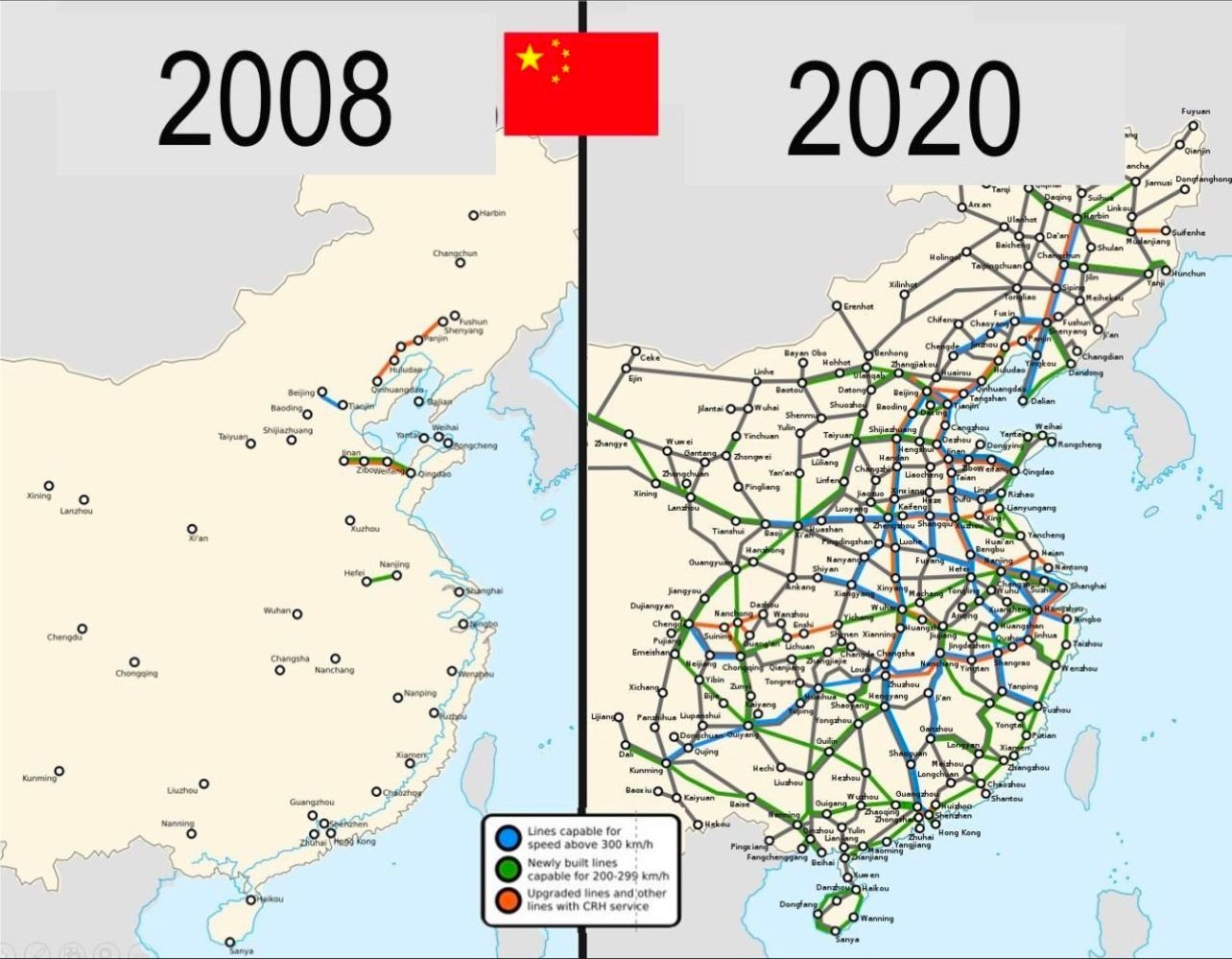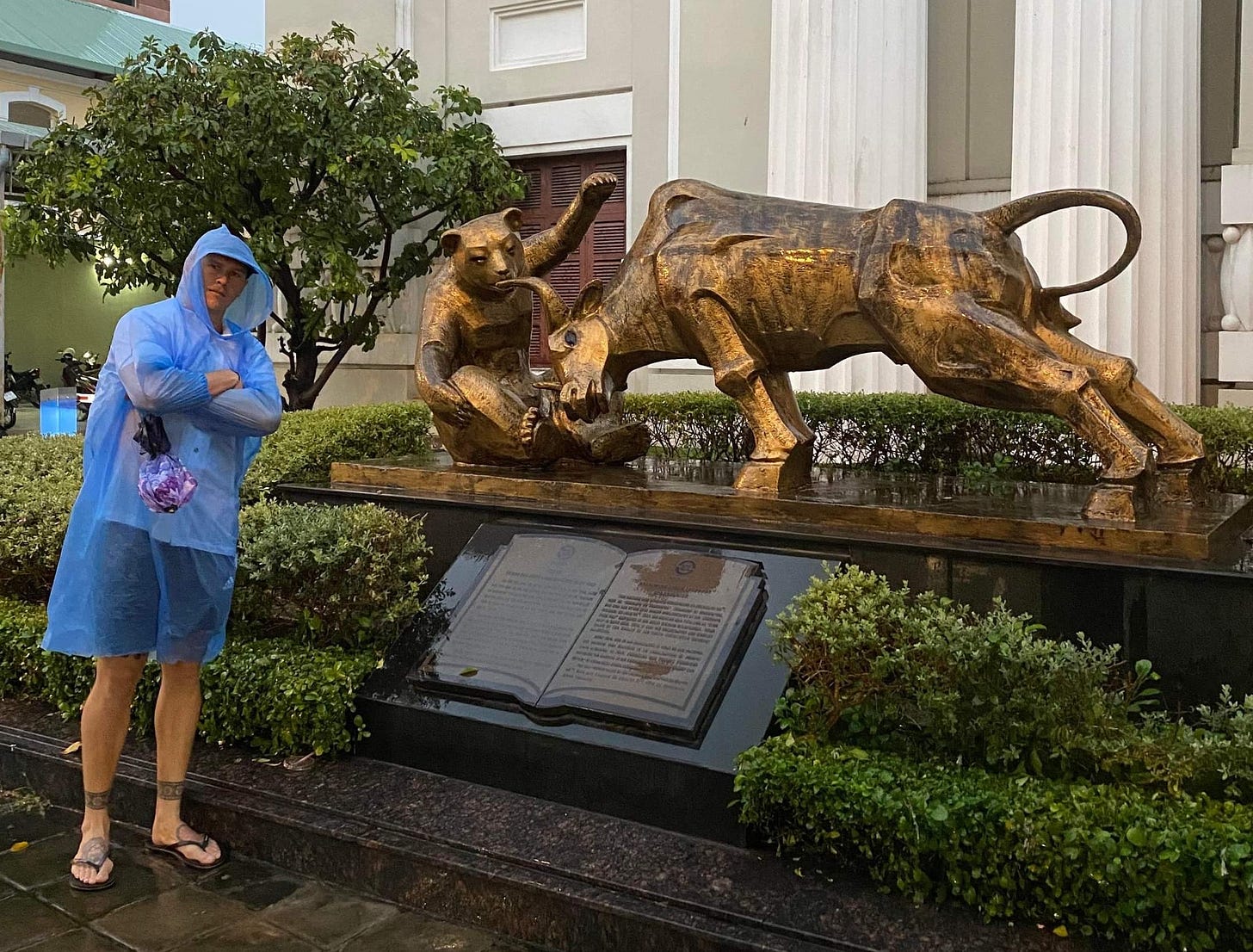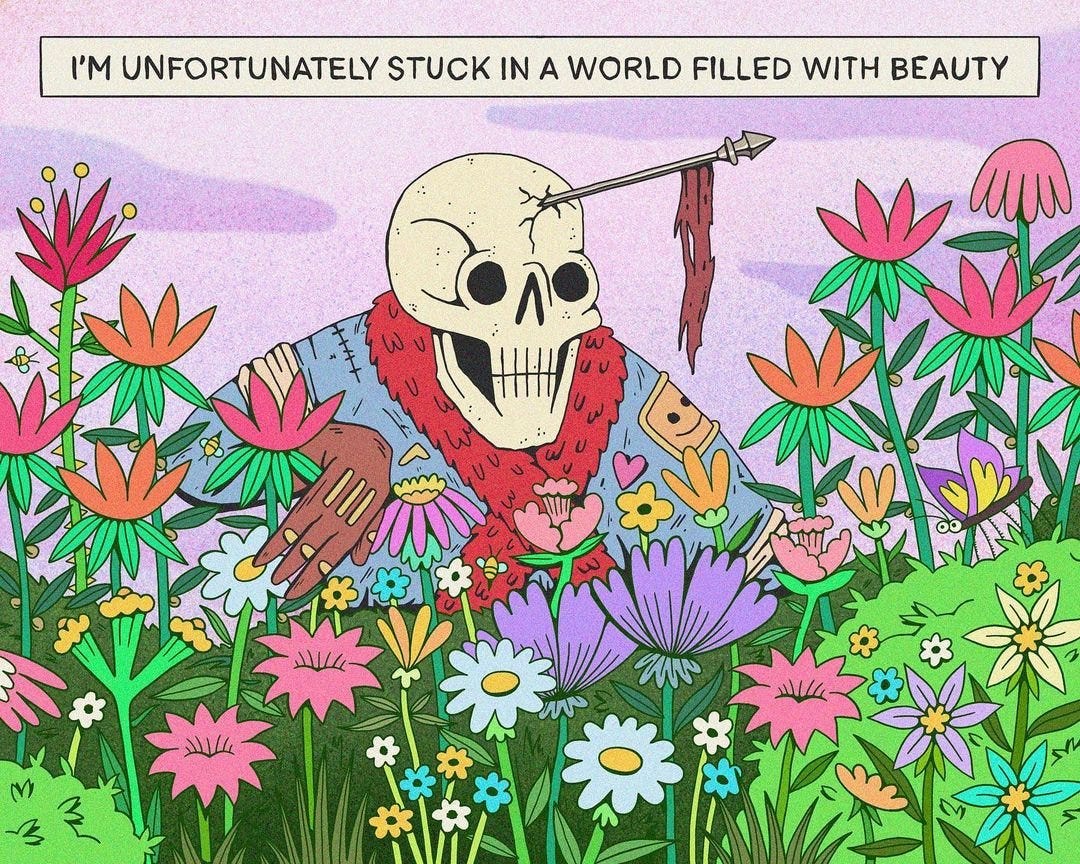Best of March in Asia-Pacific
Curating the best content in the region
Don’t fall into the trap of productivity porn—chasing productivity for its own sake isn’t helpful. Many people spend too much time thinking about how to perfectly optimize their system, and not nearly enough asking if they’re working on the right problems. It doesn’t matter what system you use or if you squeeze out every second if you’re working on the wrong thing.
- Sam Altman
I’m still here. You’re still here. Let’s boogie.
Chart of the Month - The Growth of China’s Rail
Vietnam's coffee culture survives 10 years of Starbucks [PDF]
Whilst Vietnam has the biggest cafe market by total value and number of shops in Southeast Asia, it has just under one Starbucks location for every 1 million people - the smallest number among ASEAN’s six main economies.
As an aussie coffee snob (on a decaf bender of late RIP), I don’t think this lack of Starbucks is a bad thing!?
The local chains chart stood out to me though:
From Highlands’ website, there are over 200 stores in Ho Chi Minh City alone. I first visited HCMC in 2016, and not just saying this for dramatic effect, but it was where I first fell in love with coffee (having two raging coffee addict mates as travel buddies helped too). But I remember all the small, intimate cafes, making it seem so homely.
Visiting last year in 2022 it felt much more on the chain-ey side. Cafe Amazon isn’t in the above graphic but I remember them everywhere in my latest visit.
But my pro tip for Vietnamese coffee? Make sure you try an egg coffee at Cafe Giảng if you’re ever in Hanoi. The iced option literally changed my life. Fair warning, the place is chokkers. As busy as a public school bike rack. Get in and go upstairs, get a stool, and enjoy one of the best coffee experiences of your life.
Zhang Lei - Lessons from a Legend
You know I gotta pump my own tyres.
From an early life hustling at Zhumadian Station renting books out to bored passengers, earning the highest college entrance score in his province, trying life as a bricklayer on a construction site, to not only studying at Yale, but having investing legend David Swenson as a mentor, to now running one of Asia’s largest private equity firms.
Zhang Lei has lived a life most of us would be lucky to achieve in several lifetimes.
I hope I did his story justice.
Alibaba Reorg Either a Berkshire-like model or just clever corporate engineering
If you work in tech long enough, you will experience many company reorgs. They are almost as routine as sales kickoffs or quarterly earnings calls. But every once in a while, a consequential company does a reorg so major and out of the box that it could shake up how an entire industry does things.
Google becoming Alphabet in 2015 was one example. Alibaba’s most recent reorg, announced earlier this week, is, in my view, another.
Alibaba’s new six units:
China Commerce (Taobao, Tmall, Taobao Deals, Taocaicai, Freshippo, Tmall Supermarket, Sun Art, Tmall Global. Alibaba Health, and 1688.com)
International Commerce (Lazada, AliExpress, Trendyol, and Daraz)
Local Consumer Services (Ele.me, Amap, and Fliggy)
Cainiao (domestic and international logistics)
Cloud (Alibaba Cloud, DingTalk, and other cloud-based B2B SaaS products)
Digital Media and Entertainment (Youku and Alibaba’s own movie studio)
Kevin Xu explains that the positive interpretation of their reorg is Alibaba moving to a Berkshire-like model (a lightweight holding entity that owns many many businesses – some wholly, some partially, some of which are synergistic, some of which are totally uncorrelated, and all of which operate independently and generate lots of cash). And the cynical view of the reorg would be corporate engineering and antitrust dodging.
I guess only time will tell!
Arisaig Partners 8 anecdotes from their first post-Covid visit
Traffic is back and people are out and about
Mask wearing is not endemic despite covid opening being so recent
COVID infrastructure has gone
Food delivery is structurally important in China’s major cities and infrastructure has evolved
Meituan is now delivering 50 million orders per day (on average) vs 27 million pre-COVID. […] Cities are adapting, and riders are asked to drop orders on racks in the lobbies of shopping malls or office buildings, and message the customer that the food has been placed for collection. This saves the time required for riders to send the orders to door. What this means is that Meituan riders can deliver 40-50 orders per day compared to riders elsewhere who can only deliver 25-30 orders. Order density is perhaps the crucial determinant to enabling favourable unit economics in the food delivery space, in our experience.
Competition in food delivery has increased but Meituan remains dominant in terms of delivery speed and offering
Healthcare enhancement is a focus for the government post-COVID, and aligns to government focus on moving up the manufacturing curve
EVs are rapidly taking over the car market
Humble and hardworking management teams are back at work, and focusing on building brands and businesses
China's aging population threatens a Japan-style lost decade [PDF]
Not a mindblowing realisation to most. But some interesting charts and talking points brought up.
For years, China has capitalized on cheap labor to become an economic powerhouse and the world's factory floor. That will have to change. As happened in Japan, manufacturers could slowly start exiting the country, resulting in a vicious cycle of falling domestic demand and less domestic investment. In turn, fewer jobs and a further drop in private consumption and business investment could follow.
Petrol smuggling to Thailand
A different but interesting article. Essentially:
Standard petrol in Thailand retails for 36-37 Baht (USD 1.03-1.06) per litre, compared to just RM 2.05 (USD 0.46) per litre in Malaysia. […]
Thus, smuggling cartels are able to buy petrol for 16 Baht and sell for 24 to 26 Baht, making 8-10 Baht per litre. Retailers sell from 30-45 Baht, making 6-21 Baht per litre. […]
Estimates of daily sales in Southern Thailand range from 10,000 to 25,000 litres per day, depending on the day of the week, and time of month. This extrapolates to 160,000-400,000 Baht (RM 20-51.4K) imports of petrol per day from Malaysia, excluding diesel purchases. This gives petrol smuggling cartels 80,000-200,000 Baht gross per day, which would be divided between half a dozen smuggling cartels.
Dan Wang’s 2022 Letter
The GOAT. This one is too big to do justice with any short snippets from me. Worth reading on a late Sunday arvo in the sun, beer in hand.
"The Chinese state remains enormously capable. But that statement demands refinements. First, it increasingly resembles a crew of firefighters who bring extraordinary skill to dousing fires that they themselves ignited."
RESTRICT China It's “game over” for all Chinese tech companies in the US.
For founders and entrepreneurs, it's time to start recognizing this reality and plan your overseas market expansion activities elsewhere. There are plenty of opportunities still, albeit less profitable ones, in Southeast Asia, Latin America, the Middle East, and corners of the EU.
For VCs who invested in Chinese tech startups at rich valuations on the assumption that the US market is up for grabs, it's time to do an honest markdown of those deals and adjust expectations accordingly.
Why is Japan so Wacky? Blame it on the Economic Bubble in the 80s
An interesting initiative with interesting consequences.
Enter the Furusato Souzei (ふるさと創生事業) project. This was an initiative started by the prime minister at the time, Noburo Takeshita, which gave over 3,000 local governments a million dollars each to use however they saw fit. The idea was to revitalize local communities and showcase their uniqueness in the form of new buildings or events. […]
In Aomori, Nishitsugaru-gun (now Tsugaru-shi) funded the creation of a giant clay figure at Kizukuri Station, whose eyes light up when a train arrives. This massive project went to a station that hosts less than 220 passengers daily…
Pony Ma’s essay from A Letter a Day
What makes a good internet product?
It must have its applications, because a product creates value only when it is used.
Basic science continues to advance beyond the limits of human cognition and empowers us with greater capabilities. But these capabilities, being constantly improved and accumulated, need to be applied in real-world scenarios to actually make our work and life better. Fidonet connected people around the globe and allowed information exchange and relationship-building to happen. This new application scenario brought the computer to life for most users.
Second, new values are created through the network, which takes shape and evolves when there are enough product users. This is like good literary work, which is often interpreted differently by readers beyond the author's original intention.
The same is true of an internet product. Often creators don’t realize how people are going to use their programs until they see them in action. The greater the number of users, the more application scenarios and methods that can be explored and the more innovations and creations that can occur. Close observation of everyday life allows us to discover more and gain inspiration from which we can develop new functions and drive the product’s evolution.
In the few decades after Fidonet, we witnessed the rapid development of the internet and have been lucky to play a part in its evolution. The products Tencent has created, like QQ and Weixin (and its international version WeChat), are the result of collaboration between internet professionals and users. Both parties have been involved in the exciting creative process, which is ever-changing.
Crossover
Many innovations in the tech industry are a result of crossover applications. When the technical capabilities of humans develop to a certain stage, crossovers will give rise to new application scenarios. For example, QQ is a crossover application of the instant messaging tool to the internet domain, and the nature of Weixin is in fact a mailbox, meaning it is the fusion of the mailbox and the mobile internet.
Understanding Japan’s Insane Bubble with Rei Saito [Spotify] [Apple]
I could listen to Rei for hours, both for his incredible knowledge of Japan, and his super smooth voice.
“13 of the 20 most valuable global corporations in 1989, right at the peak of the Japanese bubble, were Japanese. So, more than half of the 20 largest companies in the whole world were Japanese. On top of that, the asset bubble. So, the property prices, we talk about 2008 as a horrible time in the US but in the early 90s, Japanese property prices were almost double of American property prices in 2008 in the largest cities. So the bubble was twice as big in Japan as it was in 2008 in the US which is unfathomable. One fact I really love is that Japan is quite a small country, especially if you’re from Australia. I read somewhere it’s the size of California. All the land in Japan was worth more than all the land in the US at its peak. The Imperial palace, which is like a couple of football fields, you can literally walk around it in half an hour, that place alone was worth more than California.”
Nintendo on Acquired [Spotify] [Apple]
Beware, it’s a bloody big podcast at 3 and a half hours. And it only covers Nintendo up until the ‘90s! So hopefully we get a part 2 of post ’90s Nintendo
This is a classic case of the brightest results often coming from the darkest periods:
remember the state that the United States was in. They just went from $3.2 billion being the home gaming market size to $100 million. They're burying games in concrete, in landfills, smashing them up, and throwing away consoles. This is 1983, so it's the exact same moment in Japan that somebody—I don't know exactly who and exactly what the story is—is deciding to pull the trigger and say, take the Famicom [Nintendo Entertainment System] and make an American version of it.
By 1990 Nintendo had taken 95% of the video game market and did $2B in revenue!!!
Building the hottest Southeast Asian Tech Startup Newsletter with Amanda Cua, Founder of Backscoop [Spotify] [Apple]
Amanda’s LinkedIn marketing is annoyingly good. So plenty to learn from this convo.
the best part of being young is that you have so many years of your life to make up for all your failures. I have always said like, it's cause I was 19, if I fail, I could go back to college, get a new job, and my life will be so much longer that this might just be buried in the past, right?
[…] do I want to do it? And how bad will I feel if I never do it? If I don't take the leap now and I told myself that regret that I would feel is going to be so intense that I might as well do it now, I literally have no excuse.
Michael McGaughy: Distressed Markets and Unconcensus Investing
Only available as a YouTube video AFAIK, but a valuable conversation!
Same as every other month, the most efficient way to share videos is through a YouTube playlist. I aim to highlight both well-known channels and some hidden gems. But mostly, I just want to showcase some of the most insightful and interesting videos related to Asia-Pacific for this month.

This tweet received an excellent reply that I found interesting and worth sharing.
Other than that, I don’t have much else to add.
Burnout is following me around like a bad smell.
I treat my content as if it were a compost heap. I read, research and consume useful resources, but then leave it alone, let it compress down, and degrade into its useful fertilizing elements.
Only now do I realise I’ve been spreading my shit for too long. Without focusing on the initial composting part. Time to chill out, read, and recharge I think.
"the world is filled with people doing the best they can... [people] who would like to put on a clean shirt every morning and live their lives with a little dignity.”
- Anthony Bourdain
Godspeed amigos.
You can find previous posts here. I also interview legends at Compounding Curiosity, lurk on Twitter @scarrottkalani, and have a Discord server for everything Allocators Asia (I’d love for you to join our cool little community we got going).
Want to get in contact? Reply to this email, comment on Substack, or send a letter via carrier pigeon and trust that fate will deliver it.















Really like the tidbits that you mention about your personal life, really adds a flavour to your newsletter and makes us readers feel more involved in your journey!
Would love to just catchup sometime and just get to know more about your experiences and get some tips on navigating life and newsletters.